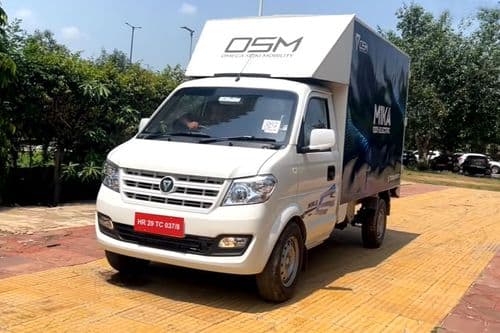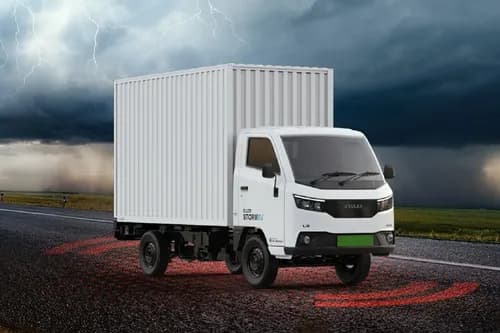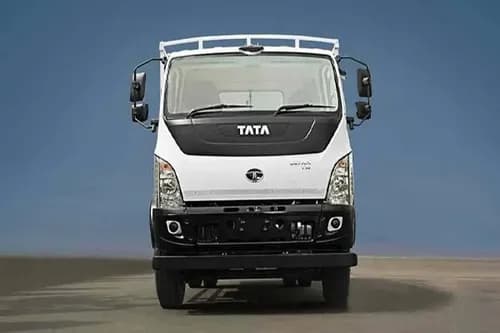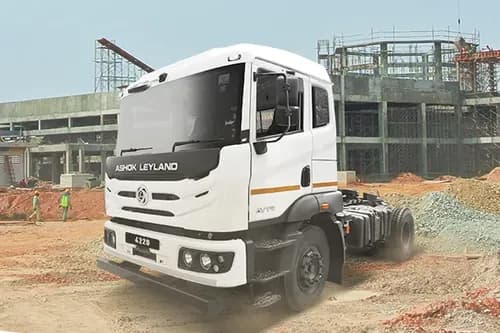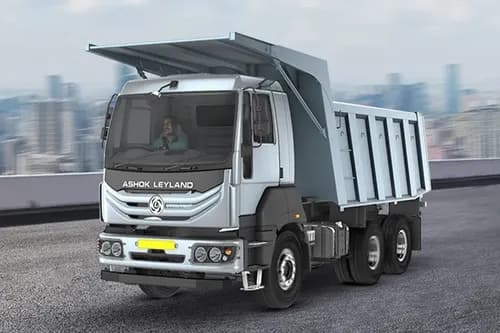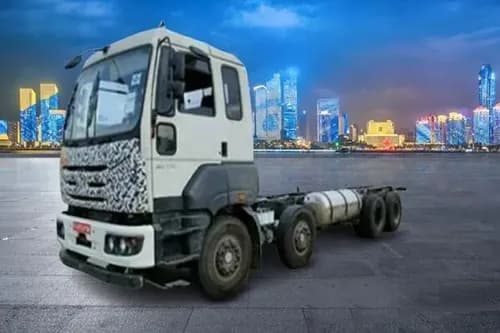Ad
Ad
Ad
Vehicle Scrappage Policy in India: Government Issues New Guidelines
Discover India's new Vehicle Scrappage Policy: Learn how the government's guidelines aim to combat pollution by phasing out older vehicles.
 Owners who scrap their old vehicles will receive an amount equivalent to 4% to 6% of the vehicle’s value, along with a scrapping certificate.
Owners who scrap their old vehicles will receive an amount equivalent to 4% to 6% of the vehicle’s value, along with a scrapping certificate.
To combat pollution and promote environmental protection, the Government of India has introduced a new guideline regarding vehicles older than 15 years. Union Minister Nitin Gadkari announced that the government has banned the operation of vehicles exceeding this age limit.
The Vehicle Scrappage Policy aims to address environmental concerns, reduce pollution, and promote sustainable practices in the automobile sector. As vehicles age, they become less fuel-efficient, emit higher levels of pollutants, and pose safety risks. The policy encourages the phasing out of older vehicles and their responsible disposal.
Importance of Scrapping Older Vehicles
Older vehicles, especially commercial ones, tend to emit higher levels of pollution compared to newer models. Therefore, it becomes necessary to scrap them to mitigate environmental damage. The government's vehicle scrappage policy mandates the disposal of vehicles after a certain period, prioritizing environmental sustainability and societal well-being.
Government's Initiative
Speaking at the inauguration of the annual agricultural exhibition Agro Vision 2024, Union Minister Nitin Gadkari highlighted the significance of this policy. He stated, "Under the guidance of PM Modi, I have signed a file yesterday that mandates the conversion of all government vehicles older than 15 years into scrap."
Nationwide Implementation
As per the new guidelines, scrap centers will be established in every district to facilitate the scrapping process efficiently. This move aims to streamline the disposal of older vehicles across the country, ensuring compliance with the government's directive.
Also Read: Tata Motors establishes state-of-the-art registered vehicle scrapping facility in Bhubaneswar
Understanding the National Vehicle Scrap Policy
In a bid to address environmental concerns and enhance road safety, the Indian government has initiated the National Vehicle Scrap Policy, targeting vehicles older than 15 years for scrappage. Spearheaded by Union Minister Nitin Gadkari, this policy aims to regulate the disposal of ageing vehicles and promote sustainable transportation practices across the nation. Here’s a comprehensive look at what the National Vehicle Scrap Policy entails and its significance:
Policy Overview
The National Vehicle Scrap Policy outlines measures to retire vehicles aged over 15 years from active service. It mandates the establishment of registered vehicle scrapping centers in every district of India, facilitating the systematic dismantling and disposal of old vehicles.
By phasing out outdated automobiles, the government aims to mitigate pollution levels and enhance public health standards. Moreover, the policy emphasizes the adoption of eco-friendly transportation alternatives to reduce carbon emissions and promote sustainable development.
Environmental Imperatives
Old vehicles pose a significant threat to environmental health due to their inefficient fuel consumption and high emission levels. By scrapping outdated automobiles, the National Vehicle Scrap Policy seeks to reduce pollution and improve air quality across urban and rural landscapes.
Reduced emissions not only improve respiratory health, but they also contribute to a cleaner and greener environment, fostering sustainable living circumstances for future generations.
Safety Concerns
Beyond environmental considerations, vehicle scrapping addresses critical safety concerns associated with aging automobiles. Old vehicles often fail to meet modern safety standards, increasing the risk of accidents and road fatalities.
Through the systematic removal of outdated vehicles, the National Vehicle Scrap Policy endeavors to enhance road safety by encouraging the adoption of newer models equipped with advanced safety features. By prioritizing safety, the policy aims to minimize traffic incidents and safeguard the lives of motorists and pedestrians alike.
Also Read: Highway Hero Scheme: Enhancing Comfort and Safety for Truck Drivers
Economic Benefits
In addition to its environmental and safety implications, vehicle scrapping offers substantial economic advantages. Older vehicles have greater fuel and maintenance costs, leaving owners with growing expenses over time. By transitioning to newer, more fuel-efficient models, vehicle owners can significantly reduce operating expenses and enhance their economic viability.
Furthermore, the establishment of scrapping centers generates employment opportunities and stimulates economic growth in local communities, fostering a sustainable ecosystem for the automotive industry.
Key Points of the Policy
End-of-Life Vehicles (ELVs)
- All petrol vehicles older than 15 years and diesel vehicles older than 10 years are considered ELVs in Delhi.
- ELVs are restricted from registration and plying on public roads or spaces.
- The Transport Department seizes ELVs and hands them over to Registered Vehicle Scrapping Facilities (RVSFs) for proper disposal.
Impounding and Scrapping Process
- The Delhi Transport Department issued step-by-step directions for impounding overaged petrol and diesel vehicles.
- Vehicles parked in public places were picked up and sent to scrap yards. However, complaints arose when even vehicles parked outside homes were impounded.
How to Handle Your ELV
If you own an ELV, you have two options:
- Scrap Your ELV: You can choose to scrap your vehicle.
- Transfer to Another State: For 15±year-old diesel vehicles, no No Objection Certificate (NOC) will be issued. However, NOCs can be obtained for diesel vehicles up to 10 years old and petrol vehicles up to 15 years old, allowing them to be used in any part of the country.
Steps to Check Your Vehicle’s Eligibility
Age Verification
Determine if your vehicle falls within the ELV category based on its age:
- Petrol vehicles older than 15 years.
- Diesel vehicles older than 10 years.
Fitness Test
- ELVs need to pass a fitness test before re-registration.
- The fitness test ensures mechanical soundness and safety.
Registered Vehicle Scrapping Facility (RVSF)
- If your vehicle qualifies as an ELV, it will be seized by the Transport Department.
- The RVSF will handle the scrapping process according to the rules.
Documents Required to Scrap Your Vehicle
When scrapping your vehicle in India, make sure you have these documents handy:
- Vehicle Registration Certificate (RC): This proves ownership and is needed for deregistering the vehicle.
- Insurance Documents: Show proof of insurance coverage during the vehicle's use.
- Pollution Under Control (PUC) Certificate: Ensure your vehicle meets emission standards.
- ID Proof: Carry a government-issued ID for verification.
Criteria for Vehicle Scrapping
The criteria for determining which vehicles should be scrapped are as follows:
Commercial Vehicles: These will be de-registered after 15 years if they fail to obtain a fitness certificate. Additionally, increased fees for fitness certificates and tests will apply to commercial vehicles beyond 15 years from the date of initial registration.
Private Vehicles: Private vehicles will be de-registered after 20 years if found unfit or if their registration certificates are not renewed. Re-registration fees will increase for private vehicles beyond 15 years from the date of initial registration.
Incentives for Vehicle Owners
To encourage vehicle owners to participate in the scrapping process, the policy proposes the following incentives:
Financial Incentives: Owners who scrap their old vehicles will receive an amount equivalent to 4% to 6% of the vehicle’s value, along with a scrapping certificate.
Road Tax Rebate: A 15% to 25% road tax rebate will be provided to those purchasing new vehicles after scrapping their old ones.
Scrapping old vehicles has numerous benefits:
Government Discounts and Subsidies: Scrapping old vehicles can qualify you for government discounts and subsidies, making it more affordable to purchase new vehicles.
Safe Transportation and Environment: By getting rid of old vehicles, you contribute to safer transportation and help reduce environmental pollution associated with outdated vehicle emissions.
Employee Safety: If you own a vehicle for business purposes, scrapping old vehicles ensures the safety of your employees by providing them with newer, more reliable transportation options.
Tax Rebates: Governments often provide tax rebates or exemptions for purchasing new vehicles through vehicle scrapping programs, reducing the overall cost of buying a new vehicle.
Also Read: India’s Transition: From FASTag to GPS-Based Toll Collection
Conclusion
The introduction of the vehicle scrappage policy highlights the government's commitment to combating pollution and safeguarding the environment. The Vehicle Scrappage Policy is a significant step toward cleaner air and sustainable transportation. By responsibly disposing of ELVs, we contribute to a greener future for our cities.
Features & Articles
Electric Three-Wheeler Maintenance Guide
This article will provide a comprehensive guide on maintaining your electric three-wheeler in India, offering simple and easy advice and practical tips....
15-Jan-25 01:17 PM
Read Full NewsBenefits Of Buying Tata Ultra E.9 Electric Truck In India
Explore the Tata Ultra E.9 electric truck: zero emissions, low costs, advanced safety, and modern tech. Perfect for efficient, sustainable urban logistics....
14-Jan-25 11:59 AM
Read Full NewsBattery Swapping in Electric Vehicles: A Game-Changer for the EV Industry
In this article, we will explore the battery-swapping concept, its pros and cons, the supporting infrastructure, and battery-swapping models....
13-Jan-25 12:45 PM
Read Full NewsBenefits of Buying Tata Intra V50 in India
Discover the Tata Intra V50 pickup truck in India, the most versatile model, offering the largest load capacity and the fastest turnaround time in its segment....
10-Jan-25 12:52 PM
Read Full NewsBenefits of Buying Blue Energy 5528 LNG heavy-duty truck in India
The Blue Energy 5528 is a 4×2 tractor truck powered by Liquefied Natural Gas (LNG). It offers a clean alternative to diesel, reducing harmful emissions. ...
06-Jan-25 12:23 PM
Read Full NewsRoadside Assistance Services for Commercial Vehicles
Roadside assistance is a service that helps drivers when their vehicles break down unexpectedly. ...
26-Dec-24 12:58 PM
Read Full NewsAd
Ad
Registered Office Address
Delente Technologies Pvt. Ltd.
M3M Cosmopolitan, 12th Cosmopolitan,
Golf Course Ext Rd, Sector 66, Gurugram, Haryana
pincode - 122002
Join CMV360
Receive pricing updates, buying tips & more!
Follow Us
COMMERCIAL VEHICLE BUYING BECOMES EASY AT CMV360
CMV360 - is a leading commercial vehicle marketplace. We helps consumers to Buy, Finance, Insure and Service their commercial vehicles.
We bring great transparency on pricing, information and comparison of tractors, trucks, buses and three wheelers.







